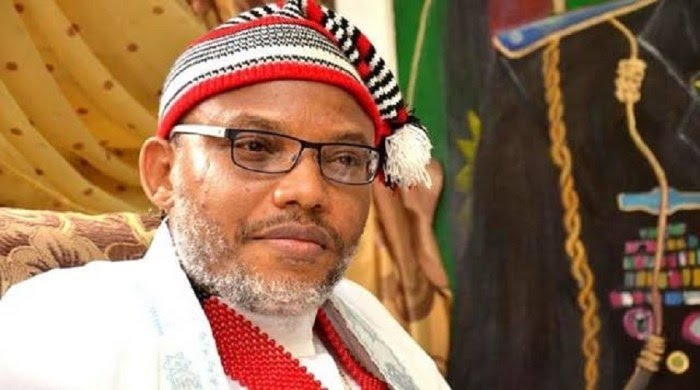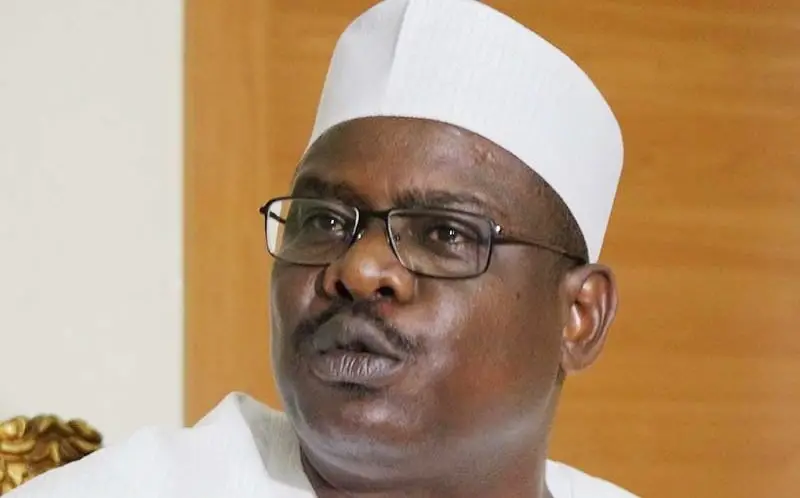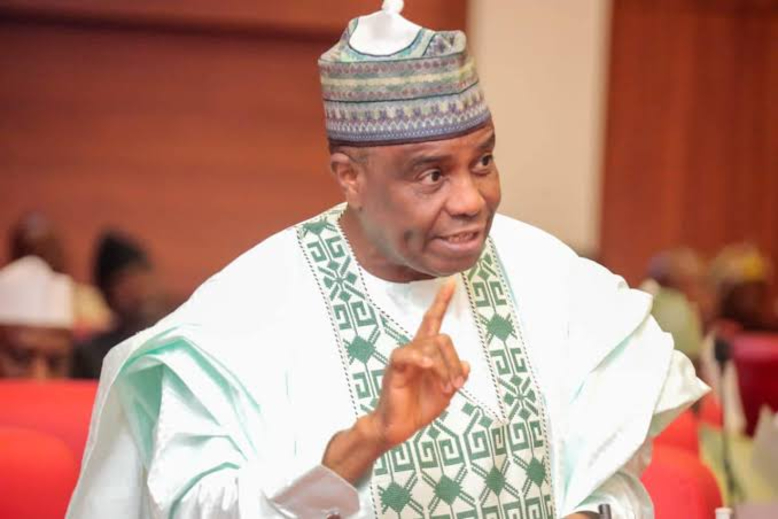News
2023 Polls: Twist, Turns As Court Frees Nnamdi Kanu

There are indications that all is not well with the secessionist group, Indigenous People of Biafra, IPOB.
This is as the highest decision making organ of the group, Directorate of State (DOS) has said that there are no plans to disrupt election in the South-East, but shortly thereafter, another group countered that position.
Videos of a breakaway member of the group, Mr Simon Ekpa, a Nigeria/Finland citizen had insisted that no election would hold in the zone.
Ekpa in a video that went viral on social media had threatened that there will be no election in the South-East in 2023, vowing that IPOB will disrupt the process.
But the media and publicity secretary of the group, Emma Powerful in a press statement last week said there is no truth in any information circulating on plans to disrupt election in Igboland.
READ ALSO: FG Insists Nnamdi Kanu Not Acquitted, To File Fresh Charges
Powerful in the statement said: “The IPOB leadership has for the umpteenth time stated unequivocally that part of our modus operandi in our agitation for freedom has never been, is not and will not be violent agitation. This explains our consistent demand for the UN to organise a Referendum in the Biafran territory for the Biafran people to determine their destiny. To this effect, IPOB is neither contemplating nor will it encouraged or sponsor anyone or group to disrupt the Nigeria shambolic selection process called election.
“IPOB has constantly made it public that we have no interest in and cannot legitimise the aberration they call election in Nigeria. We are a focused, determined and disciplined freedom fighting movement not political thugs and IPOB is devoted to the cause of liberating our people from subjugation and from modern day slavery and Neo-colonialism and will not allow ourselves to be distracted from this very objective. If in the future IPOB Leadership decides to make further statement on the upcoming Nigeria selection process called election, we shall make such statement through our official channels.”
The above had sparked a debate about the unity in the group, as Ekpa has severally made broadcasts, in the name of IPOB, including fundraising, and has severally declared sit-at-home protest in the name of the group, which were honoured by people in the South East. For an average man like Sylvester Sunday, a phone accessories dealer in Aroma junction, Awka: “To me, all of them are the same. Any time they declare their sit-at-home, I just obey.”
But Emma Powerful in a WhatsApp exchange with DAILY POST asked that all utterances of Ekpa be discarded and ignored, as he was neither a member of IPOB, not had he powers to speak for the group.
READ ALSO: Ozekhome Speaks On Kanu’s Acquittal, Admits Too Complex For Human Understanding
Powerful said: “You shouldn’t take what Simon Ekpa said because it won’t hold water. He is nobody in relevance and popularity. IPOB has no business in Nigeria selection called election and besides Simon Ekpa is never IPOB member and I don’t know why you equate his strategies with IPOB strategy.
“I called you before and informed you never to write whatever Simon Ekpa says, Simon Ekpa never introduced any new thing unless what IPOB introduced. Monday Sit-at-home was issued by IPOB and cancelled and he capitalise on it and is causing problem. Tell your people or friends to stop joining my statement with Simon Ekpa unless they have intentions to destroy IPOB which cannot work for them.”
Meanwhile, the discharge and acquittal of Nnamdi Kanu by the Court of Appeal on Thursday has raised mixed feelings among many. Many believe that Kanu’s release would help him to come out of detention and take a firm stand on the information he had been passing from prison through third party, he would be able to totally proclaim by himself that there would be no election boycott in the South East. Doing so, he would reign in the like of Ekpa and other alleged criminals operating in the South East in the name of IPOB.
But on the other hand, some people believe that the release of Kanu may be an orchestrated plot to use him to scare South easterners into voter apathy, as he would most likely insist on the realisation of Biafra, against peaceful election in the South East.
At UNIZIK junction, Awka, where some supporters of Kanu were jubilating over his recent discharge, a supporter, whose name was simply given as Oga Boss said: “Now that Kanu is on his way out of prison, let me see how all these people who are using his name to cause trouble can continue.
“Be it Simon Ekpa, who does not always listen anytime Kanu passes a message from prison, or all those people who go about kidnapping and dropping the name of IPOB, let me see how they will not listen when Kanu speaks.”
READ ALSO: Nnamdi Kanu: IPOB Reacts, Says ‘Biafra Realisation Is Next’
There have been news of how some people who were loyal to Kanu had been using his name to make money for themselves since Kanu has been in prison. During the Anambra governorship election in 2021, which was also the very peak of violence in the State, where many areas were declared very dangerous to visit, a governorship aspirant from a popular political party had to part with millions of Naira to persons who pledged loyalty to Kanu, just to assure there will be safety as the candidate flagged-off his campaign.
Meanwhile, two respondents, Victoria Mmerichukwu and Nwama Lubia who commented on Facebook said it is still suspicious how all charges against Kanu were dropped. They believe it may be a grand plot to use Kanu, through his release, to distract the Igbo.
“It’s indeed suspicious! I see it as a strategy, to bring division among Ndigbos. Because, for sure some will be agitating for Igbo Presidency while others Biafra, which they might (cause) declaration of no election in South East,” they said.
DAILY POST
News
New Tax Laws: Suspend January 2026 Implementation — Senator Ndume Tells Tinubu

Former Senate Leader, Ali Ndume has appealed to President Bola Ahmed Tinubu to suspend the January 1, 2026, implementation of the country’s new tax laws amid growing controversy.
The federal lawmaker made the appeal in a statement he issued on Wednesday in Abuja.
This comes as the Nigerian Bar Association demanded the suspension of the implementation.
Recall that a member of the House of Representatives, Abdussamad Dasuki, had last week called the Parliament’s attention to alleged alteration to the tax laws.
READ ALSO:FIRS Confirms NIN As Tax ID
Chairman of the Presidential Fiscal Policy and Tax Reforms Committee, Taiwo Oyedele, in an interview on Arise Television on Wednesday, called for calm over claims of alterations in tax laws and urged Nigerians to allow lawmakers to complete their investigation before drawing conclusions.
Speaking on the ongoing controversy about the tax laws, Ndume noted that proceeding with the implementation without getting to the root of the alleged forgery will create a legitimacy challenge for the tax laws.
His statement read, “With the controversy surrounding it, the President should constitute a team to verify the veracity of the claim and act accordingly.
“As the responsive leader that he has always been, he should look at it to find out if the copy that was signed and the claim of alterations are genuine so that he will do the needful to bring the controversy to rest.
READ ALSO:US Threatens To Sanction Countries That Vote For Shipping Carbon Tax
“If not, the controversy will continue.” That is to say, the tax law will not be implemented, because you can’t build on nothing.
“So, Mr. President should suspend the implementation until the issues are resolved because so many civil society organizations, the Arewa Community, and the Nigerian Bar Association are saying that he should withdraw the tax law and investigate the allegation of forgery.”
“Therefore, Mr President should get to the root of the allegation of forgery. The small committee that will be set up should look into it while the House of Representatives does its own.”
News
Tambuwal Engages Security Agencies As US Airstrikes Hit Own LG In Sokoto

Senator Aminu Waziri Tambuwal, representing Sokoto South, has called on residents of Sokoto State to remain calm following reports of United States airstrikes targeting ISIS-linked terrorists on Christmas Day.
In a statement posted on his personal X account, the former Sokoto State governor said he was aware of reports concerning the airstrikes, which marked a direct US military action in Nigeria based on intelligence about ISWAP threats, and urged citizens to remain law-abiding while authorities clarify the situation.
“I have noted the reports concerning an airstrike carried out as part of ongoing counterterrorism efforts through cooperation between the federal government of Nigeria and the United States,” Tambuwal said. “I urge our communities to remain calm and law abiding as relevant authorities clarify the circumstances surrounding the operation.”
READ ALSO:US Dept Of War Shares Video Of Air Strikes In Nigeria
Tambuwal assured constituents that he was engaging with relevant security agencies to obtain full details of the operation and to ensure that necessary things were in place to protect civilians.
“I wish to assure the people of Sokoto South that I am in active talks with relevant security authorities to obtain full details and ensure that all necessary safeguards are upheld,” he added.
The senator emphasised that counterterrorism operations were aimed strictly at criminal and terrorist elements threatening public safety, not innocent civilians who are often victims of insecurity. He stressed that the protection of civilian lives must remain central to all legitimate security actions.
He further called on community leaders, traditional institutions and residents to work closely with security agencies by sharing credible intelligence and resisting misinformation capable of causing fear or heightening tension.
News
Rep Moore Confirms 12 Tomahawk Missiles Launched In Sokoto

No fewer than 12 Tomahawk missiles were on December 25 launched against terrorists in Sokoto State by the United States military.
Rep Riley M. Moore, the lawmaker representing Virginia’s Second District in the Congress, confirmed this in an interview with Fox News.
The US military operated in Sokoto State on Christmas night, bombing terrorists killing innocent people in parts of Nigeria.
READ ALSO:Trump’s Airstrikes: Halt Military Cooperation With US Immediately – Sheikh Gumi Tells Tinubu Govt
Some security analysts claimed on Friday that the operation was unsuccessful and had no significant impacts on the targeted terrorists.
According to them, the airstrikes landed in safe places including farms where there was no history of terrorists’ hideout.
But details began to emerge on Friday night, indicating that several terrorists were killed during the joint operations between the US army and it’s Nigerian counterpart.
READ ALSO:Nigerian Ringleader Of Nationwide Bank Fraud, Money Laundering Jailed In US, Says FBI
Moore said: “This year, thanks to President Trump, Radical Islamic Terrorists were on the receiving end of 12 Tomahawk missiles as a present.
“The successful strikes on ISIS, in coordination with the Nigerian government, is just the first step to secure the country and end the slaughter of our brothers and sisters in Christ”.
DAILY POST reports that residents of Sokoto State have been panicking since the US military operation.

 News5 days ago
News5 days agoPHOTOS: New Era In Furupagha-Ebijaw As Okpururu 1 Receives Staff Of Office

 News4 days ago
News4 days agoUBTH CMD Marks 120 Days In Office, Expresses Commitment To Providing Conducive Working Environment

 News4 days ago
News4 days agoOPINION: Gumi And His Terrorists

 News4 days ago
News4 days agoFIRS Confirms NIN As Tax ID

 News4 days ago
News4 days agoFG Declares Public Holidays For Christmas, New Year Celebrations

 Metro4 days ago
Metro4 days agoFintiri Pardons Man Sentenced To Death For ‘Killing Herdsman In Self-defence’, Others

 News4 days ago
News4 days agoOPINION: Christmas And A Motherless Child

 News3 days ago
News3 days agoJUST IN: Kano Lawmaker, Sarki Aliyu Daneji, Dies Hours After Colleague’s Passing

 News4 days ago
News4 days agoKWAM 1 Withdraws From Awujale Race, Ends Court Challenge

 News4 days ago
News4 days agoOPINION: My Man Of The Season
























